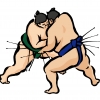What is the meaning of “iyo iyo” in Japanese? When can it be used? いよいよ

Iyoiyo kiri ga kokunatte kita.
(いよいよ 霧 が 濃く なってきた。)
Iyoiyo project no owari ni chikazuite kita.
(いよいよ プロジェクト の 終わり に 近づいて きた。)
Kare no fusei ga iyoiyo akiraka ni nattekita.
(彼 の 不正 が いよいよ 明らか に なってきた。)
Iyoiyo no toki wa keikai shite kure.
(いよいよ の 時 は 警戒 してくれ。)
Many Japanese people feel a little uplifting when they hear the word “iyoiyo(いよいよ)". This word also appears in conversations in Japanese daily life, at work, at school, in Japanese novels, movies, and TV dramas.
What does “iyoiyo" mean and in what situations is it used?
What is the meaning of “iyoiyo" in Japanese?
The meaning of “iyoiyo(いよいよ)" is an expression used to mean “the time is approaching", “the time has come", “the degree has become extremely high", and “the degree of certainty of something has increased."
In English, “finally", “at last," “eventually," “more and more", etc. are correspond to “iyoiyo."
When written in kanji, it is “愈愈(愈々)" or “弥弥(弥々)," which are quite difficult, so not many Japanese know these, and in general, “iyoiyo" is written in hiragana. (Not sure if these kanjis will be displayed on your device, though.)
The meaning of the above example sentences are as follows:
Iyoiyo kiri ga kokunatte kita.
(いよいよ 霧 が 濃く なってきた。)
The fog is getting thicker and thicker.
Iyoiyo project no owari ni chikazuite kita.
(いよいよ プロジェクト の 終わり に 近づいて きた。)
The project is finally nearing its end.
Kare no fusei ga iyoiyo akiraka ni nattekita.
(彼 の 不正 が いよいよ 明らか に なってきた。)
His injustice is becoming more and more apparent.
Iyoiyo no toki wa keikai shite kure.
(いよいよ の 時 は 警戒 してくれ。)
Be alert when that time comes.
Below are other example sentences using “iyoiyo":
Iyoiyo shiai ga hajimaru.
いよいよ試合(しあい)が始(はじ)まる。
The match is about to begin.
Iyoiyo ashita shuppatsu da.
いよいよ明日(あした)出発(しゅっぱつ)だ。
We will finally leave tomorrow.
Iyoiyo no toki wa watashitachi no chichi ni tasuke wo motomeyou.
いよいよのときは私(わたし)たちの父(ちち)に助(たす)けを求(もと)めよう。
Let’s ask our father for help when we need it.
Iyoiyo no toki niwa watashi ga otetsudai shimasu.
いよいよの時(とき)には私(わたし)がお手伝(てつだ)いします。
I will help you when that time comes.
Iyoiyo sono hi ga yatte kita.
いよいよその日(い)がやってきた。
The day came at last.
Iyoiyo ame ga tsuyoku natte kita.
いよいよ雨(あめ)が強(つよ)くなってきた。
The rain is getting stronger and stronger.
Iyoiyo Orinpikku ga kaikai shimasu.
いよいよオリンピック(おりんぴっく)が開会(かいかい)します。
The Olympics will finally start.
Asa no kuuki ga tsumetaku narihajimete, iyoiyo fuyu tourai desu ne.
朝(あさ)の空気(くうき)が冷(つめ)たくなり始(はじ)めて、いよいよ冬(ふゆ)到来(とうらい)ですね。
The morning air is starting to get cold, and winter is finally here.
Machi ni matta ongaku fesu ga iyoiyo kaimaku desu.
待(ま)ちに待(ま)った音楽(おんがく)フェス(ふぇす)がいよいよ 開幕(かいまく)です。
The long-awaited music festival has finally begun.
“Iyoiyo" means that the long-awaited thing will finally come true and it gives a slightly formal impression.
For example, suppose you are driving with someone.
If you’ve been waiting for a while to get to that destination, you can say “iyoiyo touchaku suru(いよいよ到着(とうちゃく)する)". However, it would sound strange to simply use it to mean “we are about to arrive."
In the latter case, use words such as “mousugu(もうすぐ)" and “jiki ni(じきに:直に)."
Words with similar meanings to “iyoiyo"
There are words “toutou(とうとう)", “tui ni(ついに)", “yatto(やっと)", “youyaku(ようやく)", etc. that have similar meanings to “iyoiyo."
First, “iyoiyo" is used in situations where relatively desired things happen. It’s a situation of anticipation and exhilaration.
Iyoiyo kekkonshiki no hi ga kita.
いよいよ結婚式(けっこんしき)の日(ひ)が来た。
The wedding day has finally come.
The wedding was a positive event and was long-awaited.
“Toutou"
“Toutou(とうとう)" is a situation that will eventually occur, whether desired or not. It can be used for both positive and negative events.
Toutou kekkonshiki no hi ga kita.
とうとう結婚式(けっこんしき)の日(ひ)が来(き)た。
The wedding day has finally come.
In the positive sense: A wedding has been a dream since you were little, you took the time to prepare and look forward to the wedding day.
In the negative sense: You’ve spent a lot of time, you’ve experienced some difficulties, or you’re expecting something that you don’t want to happen, etc.
“Tsui ni"
“Tsui ni(遂に:ついに)" is often used in situations where things happen as a result of changes over time, whether desired or not.
Tsui ni kekkonshiki no hi ga kita.
ついに結婚式(けっこんしき)の日(ひ)が来(き)た。
The wedding day has finally arrived.
It took a long time for the wedding, and you overcame various preparations and hardships over time.
“Yatto"
“Yatto(やっと)" is to take a long time and overcome various difficulties to realize the event. I managed to get to the event.
Yatto kekkonshiki no hi ga kita.
結婚式(けっこんしき)の日(ひ)が来(き)た。
Finally the wedding day has come.
You spent time for this wedding, experienced various difficulties, and managed to hold the wedding with effort. And you are often deeply moved or satisfied.
“Youyaku"
“Youyaku(ようやく)" is a state in which what you have long wanted is realized. You made many efforts to achieve it. You can manage to reach that goal.
Youyaku kekkonshiki no hi ga kita.
結婚式(けっこんしき)の日(ひ)が来(き)た。
The wedding day has finally come.
You have long wanted to have a wedding and it will come true. You made many efforts for this event and you feel deeply moved.
















